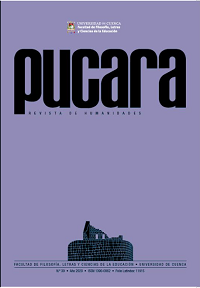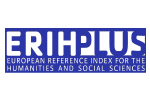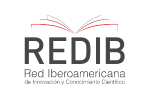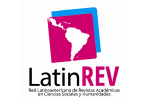Perceptions of english teachers about training experiences: a case study
DOI:
https://doi.org/10.18537/puc.30.01.06Keywords:
training, professional development, bottom up, top downAbstract
Recent studies on English teachers´ perceptions regarding training and professional development have allowed researchers to find useful tools that lead to reflection, professional development and a better teaching practice. The main objective of the present case study was to investigate, using a semi-structured interview, the perceptions of 19 English teachers with respect to two types of training; one teacher-centered; and the other was based on the Ministry of Education view. The results show that educators consider that training is significant when the context and reality of teachers are taken into account.
Downloads
References
Borg, S. (2011). The impact of in-service teacher education on language teachers´ belilefs. Systems, 39, 370-380.
Calle Calle, A., Calle Calle, M., Heras Urgilés, G., & León Vélez, M. (2017). Interpretations of Task-Based Language Teaching following an Inset Course: A Case Study. International Congress on the Didactics of the English Language, 2(1). Retrieved from http://revistas.pucese.edu.ec/ICDEL/article/view/131.
Calle, A. M., Argudo, J., Cabrera, P., Calle, M. D., & León, M. V. (2015). El impacto de la capacitación a profesores fiscales de inglés de
Cuenca. Maskana, 6(1), 53-67.
Calle, A. M., Calle, S., Argudo, J., Moscoso, E., Smith, A., & Cabrera, P. (2012). Los profesores de inglés y su práctica docente: Un
estudio de caso de los colegios fiscales de la ciudad de Cuenca, Ecuador. MASKANA, 1-17.
Cárdenas, M., González, A., & Álvarez, J. (2010). El desarrollo profesional de los docentes de inglés en ejercicio: algunas consideraciones conceptuales para Colombia. Folios, 49-67.
Chicaiza, V. (2013). Detección y análisis de capacitación para el profesorado del idioma inglés en la Universidad Técnica de AmbatoEcuador . Unpublished PhD Thesis . Madrid, España: Universidad Complutense de Madrid.
Correa, D., & Usma Wilches, J. (2013). From a bureaucratic to a critical-sociocultural model of policymaking in Colombia. HOW, 20(1), 226-242. Obtenido de http://www.redalyc.org/articulo.oa?id=499450719013
Craft, A. (1996). Continuing professional development: A practical guide for teachers and schools. London : Open University Press.
Dörnyei, Z. (2007). Research Methods in Applied Linguistics. New York: Oxford University Press.
ETS. (2017). About the Test: TOEFL IBT. Obtenido de ETS TOEFL: https://www.ets.org/toefl/ibt/about
Fandiño, Y. (2010). Research as a means of empowering teachers in the 21st century. Educación y Educadores, 13(1), 109-124. Obtenido de http://www.scielo.org.co/pdf/eded/v13n1/v13n1a08.pdf
Fandiño-Parra, Y.-J. (2017). Formación y desarrollo docente en lenguas extranjeras: revisión documental de modelos, perspectivas
y políticas. Revista Iberoamericana de Educación Superior, 8(22), 122-143. Obtenido de https://ries.universia.net/article/view/1288/2251
Freeman, D. (1989). Teacher Training, Development, and Decision Making: A Model of Teaching and Related Strategies for
Language Teacher Education. TESOL Quarterly, 23, 27-45. doi:10.2307/3587506
Giraldo, F. (2014). The Impact of a Professional Development Program on English Language Teachers´ Classroom Performance. Profile, 63-76.
Guerrero Nieto, C. H., & Quintero Polo, A. H. (2016). Las voces de los maestros frente a las políticas educativas: ¿la ilusión de la democracia? Bogotá: UD.
Kumaravadivelu, B. (2003). Beyond methods: Macrostrategies for language teaching. New Haven: Yale University Press.
Ministerio Coordinador de Talento Humano. (2012). El ministerio fortalece la enseñanza de inglés. Obtenido de http://www.conocimiento.gob.ec/el-ministerio-de-educacion-fortalece-la-ensenanza-de-ingles/
Ministerio de Educación. (2013). Obtenido de https://educacion.gob.ec/capacitacion/
Mora, A., Trejo, P., & Roux, R. (2014). English language teachers´professional development and identities. Profile. Issues in Teacher ´Professional Development, 16(1), 49-62. doi:http://dx.doi.org/10.15446/profile.v16n1.38153.
Richards, J. C., & Lockhart, C. (1994). Reflective teaching in second language classrooms. Cambridge: Cambridge University Press.
Richards, J. C., & Rodgers, T. S. (2004). Approaches and Methods in Language Teaching. New York: Cambridge University Press.
SENESCYT. (2014). Programas Educación Superior. Obtenido de Enseña Inglés: http://programasbecas.educacionsuperior.gob.ec/ensena-ingles/
Trejo Guzmán, N. P., & Mora Vázquez, A. (2014). Narrativas autobiográficas de profesores de lengua inglesa. Una mirada a la formación de su identidad profesional. Revista Mexicana de Investigación Educativa, 19(63), 1245-1266.
Wallace, M. (1991). Training Foreign Language Teachers: A reflective approach. Cambridge: Cambridge University Press.
Wedell, M. (2003). Giving TESOL change a chance: supporting key players in the curriculum change process. Systems, 31, 439-456
Published
How to Cite
Issue
Section
License
Copyright (c) 2019 María Daniela Calle, Ana María Calle, Gerardo Esteban Heras, Verónica León

This work is licensed under a Creative Commons Attribution-NonCommercial-ShareAlike 4.0 International License.
Copyright © Autors.

You are free to:
 |
Share — copy and redistribute the material in any medium or format |
 |
Adapt — remix, transform, and build upon the material for any purpose, even commercially. |
Under the following conditions:
 |
Attribution — You must give appropriate credit, provide a link to the licence, and indicate if changes were made. You may do so in any reasonable manner, but not in any way that suggests the licenser endorses you or your use. |
| NonCommercial — You may not use the material for commercial purposes. | |
| ShareAlike — If you remix, transform, or build upon the material, you must distribute your contributions under the same license as the original. |
| No additional restrictions — You may not apply legal terms or technological measures that legally restrict others from doing anything the licence permits. |












